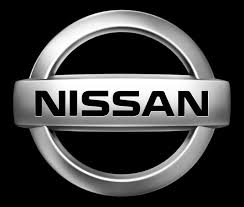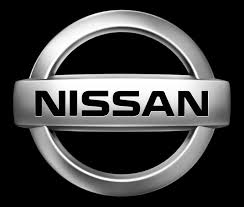
Nissan Motor Co announced it will invest 2 . trillion yen ($17.59 billion) over the next five years in order to speed up the process of electrifying vehicles to keep pace with rivals within one of the fastest-growing areas for automakers.
It's the first time that Japan's No.3 automaker, which was one of the first major electric car (EV) manufacturers with its Leaf model that was launched more than a decade ago has announced a complete electrification program.
Nissan will invest more than it did in the past decade to capture a portion of the electric vehicle market when its rivals, like Toyota Motor Corp (7203.T) and newer competitors like Tesla Inc, move ahead with plans for electric cars.
Nissan announced on Monday that it would unveil 23 electric vehicles by 2030, which includes the 15 electrified vehicles (EVs) and plans to cut down the cost of lithium-ion batteries by 65% over the course of eight years. Nissan plans to also introduce possibly game-changing solid-state batteries before March 2029.
The commitments, the Chief Executive Makoto Uchida said, would ensure that EVs accessible to more motorists.
"We will advance our effort to democratise electrification," he said in an online presentation.
The shares of Nissan fell 5.6 per cent on Monday, slipping behind its main rivals and being contrasted with Japan's index that is the benchmark - Japan index's which dropped by 1.6 per centage points.
Some analysts were not thrilled by Nissan's plans, pointing out it was already way behind competitors in the field of electrification.
Masayuki Otani is a senior analyst with Securities Japan Ltd, also noted that auto shares had fallen on Monday because of fears the new coronavirus strain could make production more difficult.
"Nissan's long term vision comes at a time when the market is perhaps not receptive to it. It can be said that it represents a huge increase in investment, it feels cautious," he said.
Nissan's electrification strategy is in the process of pulling away from a goal of sales volumes pushed by former chairman Carlos Gossip, cutting down capacity for production and types of models by a fifth in order to increase the profitability.
"It's very important for Nissan to show where we are going next, and today's plan is a vision and direction which is talking about the future," Chief Operating Officer (COO) Ashwani Gupta said when asked about the share price at the gallery at its headquarters in Yokohama where it is displaying only electrified vehicles.
While still a tiny per centage of cars are on the road, worldwide electric vehicle registrations increased in 2020 by 41 per cent despite the global car market slowed by nearly a sixth as per the International Energy Agency (IEA).
In the U.N. conference on climate change held in Glasgow earlier this month the largest car makers such as General Motors and Ford Motor Co have signed a statement which obligated to eliminate fossil fuel vehicles by 2040.
Nissan However, it has not made any commitments to phasing out gasoline-powered vehicles. The company announced on Monday that half of its vehicle mix would be electric by 2030, which includes electric vehicles as well as its hybrids with e-Power. COO Gupta stated that the target was a benchmark which could be altered.
As it prepares to meet the growing need in EVs, Nissan in July announced $1.4 billion along with the help of its Chinese partners Envision AESC to build a huge battery facility in Britain which will power up to 100,000 vehicles per year, including a brand new crossover model.
Rivals, such as Toyota who also refused to take the Glasgow pledge, are increasing the production of batteries.
The world's largest automaker according to production volume is expected to produce fifteen battery-electric vehicle (BEV) models worldwide by 2025. It will also invest $13.5 billion in 2030 to create cheaper and more powerful batteries for electric vehicles and supply systems for them.
Toyota has announced that it will be looking to launch solid-state batteries by 2020's mid-point.
(Source:www.investing.com)
It's the first time that Japan's No.3 automaker, which was one of the first major electric car (EV) manufacturers with its Leaf model that was launched more than a decade ago has announced a complete electrification program.
Nissan will invest more than it did in the past decade to capture a portion of the electric vehicle market when its rivals, like Toyota Motor Corp (7203.T) and newer competitors like Tesla Inc, move ahead with plans for electric cars.
Nissan announced on Monday that it would unveil 23 electric vehicles by 2030, which includes the 15 electrified vehicles (EVs) and plans to cut down the cost of lithium-ion batteries by 65% over the course of eight years. Nissan plans to also introduce possibly game-changing solid-state batteries before March 2029.
The commitments, the Chief Executive Makoto Uchida said, would ensure that EVs accessible to more motorists.
"We will advance our effort to democratise electrification," he said in an online presentation.
The shares of Nissan fell 5.6 per cent on Monday, slipping behind its main rivals and being contrasted with Japan's index that is the benchmark - Japan index's which dropped by 1.6 per centage points.
Some analysts were not thrilled by Nissan's plans, pointing out it was already way behind competitors in the field of electrification.
Masayuki Otani is a senior analyst with Securities Japan Ltd, also noted that auto shares had fallen on Monday because of fears the new coronavirus strain could make production more difficult.
"Nissan's long term vision comes at a time when the market is perhaps not receptive to it. It can be said that it represents a huge increase in investment, it feels cautious," he said.
Nissan's electrification strategy is in the process of pulling away from a goal of sales volumes pushed by former chairman Carlos Gossip, cutting down capacity for production and types of models by a fifth in order to increase the profitability.
"It's very important for Nissan to show where we are going next, and today's plan is a vision and direction which is talking about the future," Chief Operating Officer (COO) Ashwani Gupta said when asked about the share price at the gallery at its headquarters in Yokohama where it is displaying only electrified vehicles.
While still a tiny per centage of cars are on the road, worldwide electric vehicle registrations increased in 2020 by 41 per cent despite the global car market slowed by nearly a sixth as per the International Energy Agency (IEA).
In the U.N. conference on climate change held in Glasgow earlier this month the largest car makers such as General Motors and Ford Motor Co have signed a statement which obligated to eliminate fossil fuel vehicles by 2040.
Nissan However, it has not made any commitments to phasing out gasoline-powered vehicles. The company announced on Monday that half of its vehicle mix would be electric by 2030, which includes electric vehicles as well as its hybrids with e-Power. COO Gupta stated that the target was a benchmark which could be altered.
As it prepares to meet the growing need in EVs, Nissan in July announced $1.4 billion along with the help of its Chinese partners Envision AESC to build a huge battery facility in Britain which will power up to 100,000 vehicles per year, including a brand new crossover model.
Rivals, such as Toyota who also refused to take the Glasgow pledge, are increasing the production of batteries.
The world's largest automaker according to production volume is expected to produce fifteen battery-electric vehicle (BEV) models worldwide by 2025. It will also invest $13.5 billion in 2030 to create cheaper and more powerful batteries for electric vehicles and supply systems for them.
Toyota has announced that it will be looking to launch solid-state batteries by 2020's mid-point.
(Source:www.investing.com)














